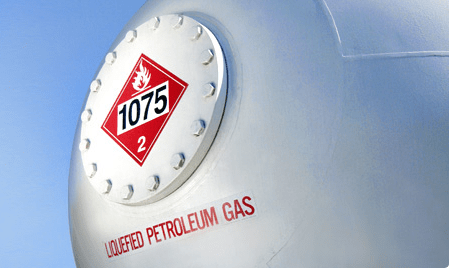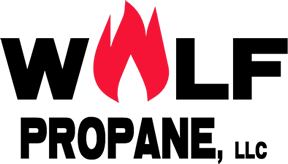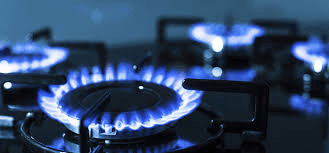Propane, also known as liquefied petroleum gas (LP gas) is a highly flammable gas. It smells like rotten eggs, a skunk's spray, or a dead animal. Some people may have difficulty smelling propane due to their age (older people have a less sensitive sense of smell); medical condition; or the effects of medication, alcohol, tobacco, or drugs. Consider purchasing a propane gas detector as an additional measure of security.
For your safety, please read and share the following tips with people in your home and other propane locations. Print and keep copies in a convenient place.
Wolf Propane Safety Tips
IF YOU SMELL GAS
1. NO FLAMES OR SPARKS!
Immediately put out all smoking materials and other open flames. Do not operate lights, appliances, telephones, or cell phones, Flames or sparks from these sources can trigger an explosion or fire.
2. LEAVE THE AREA IMMEDIATELY!
Get everyone out of the building or area where you suspect gas is leaking.
3. SHUT OFF THE GAS
Turn off the main gas supply valve on your propane tank if it is safe to do so. To close the valve, turn it to the right (clockwise).
4. REPORT THE LEAK
From a neighbor's home or other nearby building away from the gas leak, call your propane retailer right away. If you can't reach your propane retailer, call 911 or your local fire department.
5. DO NOT RETURN TO THE BUILDING OR AREA
until your propane retailer determines it is safe to do so.
6. GET YOUR SYSTEM CHECKED
Before you attempt to use any of your propane appliances, your propane retailer or a qualified service technician must check your entire system to ensure it is leak-free.
CAN YOU SMELL IT
Propane smells like rotten eggs, a skunk's spray, or a dead animal. Some people may have difficulty smelling propane due to their age (older people have a less sensitive sense of smell); medical condition; or the effects of medication, alcohol, tobacco, or drugs.
ODOR LOSS. On rare occasions, propane can lose its odor. Several things can cause this including:
• The presence of air, water, or rust in a propane tank or cylinder
• The passage of leaking propane through soil
Since there is a possibility of odor fade or problems with your sense of smell, you should respond immediately to even a faint odor of gas.
PROPANE GAS DETECTORS
Under some circumstance, you may not smell a propane leak. Propane gas detectors sound an alarm if they sense propane in the air. They can provide an additional measure of security. You should consider the purchase of one or more detectors for your home.
GUIDELINES regarding propane gas detectors:
• Buy only units that are listed by Underwriters Laboratories (UL).
• Follow the manufacturer's instructions regarding installation arid maintenance.
• Never ignore the smell of propane, even if no detector is sounding an alarm.
Additional Resources:
Above-Ground Propane Container Ownership (PDF)
Important Propane Safety Information For Users of Small Cylinders (PDF)
Interruption In Gas Service/Out of Gas Policy (PDF)
HELPFUL SAFETY VIDEOS:
*Getting Your Propane System Inspected *If You Suspect a Gas Leak
*How to Read a Tank Gauge *How to Turn Your Propane Tank Off
*Handling & Transporting Small Cylinders

